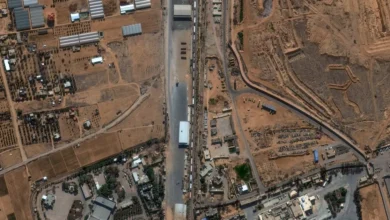Detainees walk free after Australian High Court’s ‘life-changing decision’

Dozens of people have been walking out of immigration detention in Australia after the High Court ruled indefinite detention was illegal.
While the arbitrary detention of asylum seekers and refugees is a breach of international law, successive Australian governments have continued to detain refugees arbitrarily since a 2004 decision found it legal under Australian domestic law.
But that all changed on November 8 when the High Court ruled the practice was unlawful.
Following the decision, 80 people – refugees as well as people held by immigration for other reasons – were released immediately into the community, with at least 92 more eligible for release. Experts say 300 more cases could also be affected by the decision.
“This is a hugely significant decision, which will have life-changing consequences for people who have been detained for years without knowing when, or even if, they will ever be released,” Josephine Langbien, a senior lawyer at the Human Rights Law Centre, told Al Jazeera.
“People who have lost years of their lives may finally have a chance at regaining their freedom and returning to their families and communities.”
While Australia provisionally accepts 13,500 people each year for resettlement through the United Nations High Commissioner for Refugees programme, those arriving by other means – such as by boat from Indonesia – are detained in prison-like facilities.
Since 2013, Australia has implemented Operation Sovereign Borders, which the government describes as “a military-led border security operation.”
Detention in harsh offshore processing centres is another arm of this policy, which the Australian government says is necessary to assess refugee status and possibly grant a temporary visa.
However, Human Rights Watch, Amnesty International and other human rights organisations have long argued the policy contravenes international law including the UN Refugee Convention – which forbids arbitrary detention of refugees and stipulates that seeking asylum is not illegal – and the Convention Against Torture.Critics, such as author and former detainee Behrouz Boochani, also say the aim of the policy is to create conditions so onerous that potential refugees are deterred from seeking asylum in Australia in the first place.
‘Not prison’
The plaintiff in the High Court case was a Rohingya man using the pseudonym NZYQ who had been detained indefinitely due to a lack of deportation options. As a Rohingya, he cannot return to Myanmar where the mostly Muslim minority was stripped of their citizenship in the 1980s and targeted in a brutal military crackdown in 2017.
Controversially, however, NZYQ had previously been convicted of child sex offences, had been jailed and had his visa revoked.
Under normal circumstances, a non-Australian would be deported after serving a sentence for such serious crimes.
But because NZYQ was without citizenship when he was released on parole in 2018, the Australian government was unable to do so.
As such, NZYQ remained in detention with no realistic prospect of removal and it was this indefinite detention the court ruled illegal under the Australian Constitution.
“The court found that indefinite detention is beyond the constitutional limits of the government’s power,” said Langbien.
Langbien also told Al Jazeera it was important to recognise that while NZYQ had committed a serious offence, he had served his sentence and should be released into the community like any other offender would be under domestic law.
“Immigration detention is not prison,” she said. “These two systems [immigration law and criminal law] are and must be entirely separate. The constitution does not allow immigration detention to be used for punitive purposes. The Australian government has never had the right to use immigration detention as a way to punish people or to extend sentences.”
The decision overturns the 2004 precedent in the High Court case known as Al Kateb, which ruled a stateless Palestinian man’s indefinite detention was lawful within the realm of Australian law.
Yet, Langbien said this should never have been the case and that the ruling will extend to more than just people who are stateless, but to many who cannot return to their country of origin for reasons such as fear of persecution.










